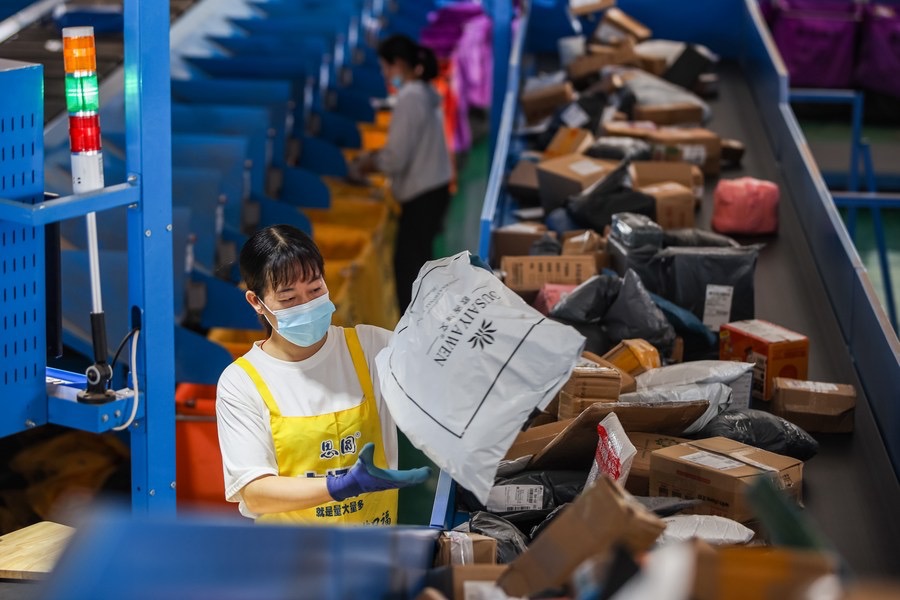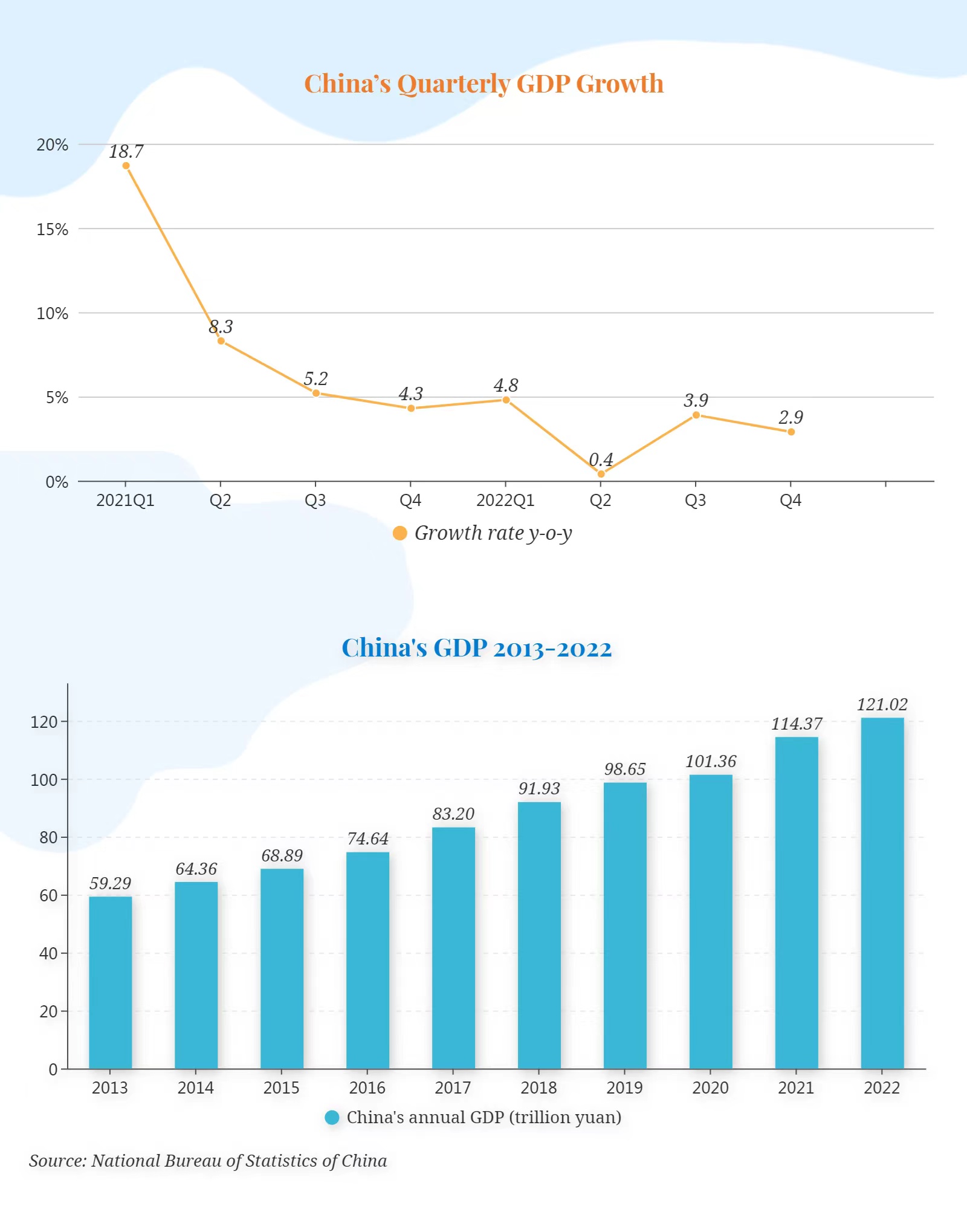
A staff member distributes parcels at the workshop of a logistics company in Lanshan County of Yongzhou City, central China's Hunan Province, Nov. 10, 2022. (Photo: Xinhua)
China’s gross domestic product (GDP) grew 3 percent year-on-year in 2022 to 121 trillion yuan ($17.93 trillion), official data showed on Tuesday. Facing challenges posed by COVID-19 and geopolitical factors, the country maintained economic growth and is on track for a faster recovery.

China's economic growth. (Graphic: Chen Lidan)
China achieved positive results in coordinating between pandemic measures and economic development in 2022, Kang Yi, director of the National Bureau of Statistics said at a press conference in Beijing on Tuesday.
“The macroeconomy fundamentals have been stabilized, with the volume of economy expanding and development quality improving,” Kang said. “At the same time, the international situation remains complicated and serious, with a triple pressure of shrinking domestic demand, shocks on the supply side and weakening expectations."
“The basis of an economic recovery is yet to be solid,” he said.
China's economic prospects in 2023 in general would look brighter, Kang said, as the country moves into the next phase of pandemic measures and relevant policies fell into place.
The World Bank has forecast China's GDP will grow 4.3 percent in 2023. The International Monetary Fund (IMF) has predicted China's economy will grow 4.4 percent while at least one-third of the world's countries fall into economic recession in 2023.
IMF Managing Director Kristalina Georgieva said China’s COVID-19 policy shift was "very likely the single most important factor for global growth" and that China would be a positive contributor to average global growth by around mid-year.
Meanwhile more than 30 Chinese provincial-level governments this week released 2023 economic growth targets ranging from 4 to 9.5 percent.
Shanghai, China’s financial hub, made recovery and expanding consumption its top priority, and vowed to keep building itself as an international consumption center.
North China’s Hebei Province emphasized increased efforts to shore up residents’ spending and help for the catering, hotel and retail sectors.
Investment and consumption repeatedly featured in the provincial government reports in line with recovery and consumption priorities laid out by the Central Economic Work Conference.
The annual tone-setting meeting in December prioritized domestic demand with a focus on consumption growth and recovery to boost economic performance.
Kang noted the COVID-19 pandemic last year dealt a heavy blow to the Chinese consumer market as spending, which involves crowds and social contact, faced constraints.
There was also a decline in willingness to spend, he noted. Spending concerns and the inconvenience of spending proved “stark problems,” Kang said, as total retail sales for consumer goods fell 0.2 percent in 2022.
National Bureau of Statistics spokesperson Fu Linghui said Tuesday that a consumption recovery was expected to drive economic growth as China entered the next stage of its COVID-19 policy, improved its consumer environment and strengthened residents’ spending capability.
Real estate sector stability was also a key focus for provincial-level governments. Against the backdrop of a sharp decrease of investments in the sector, China’s banking regulator and central bank issued a 16-point set of directives in November to promote the stable and healthy development of the industry.


